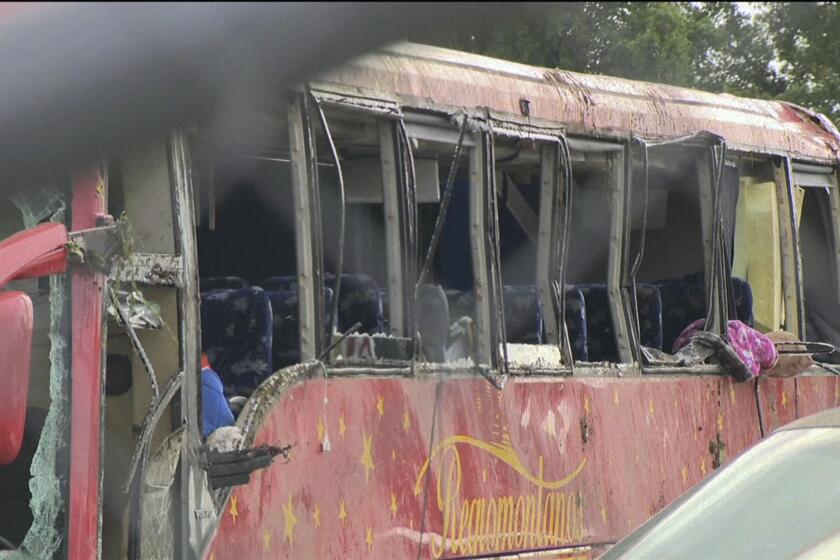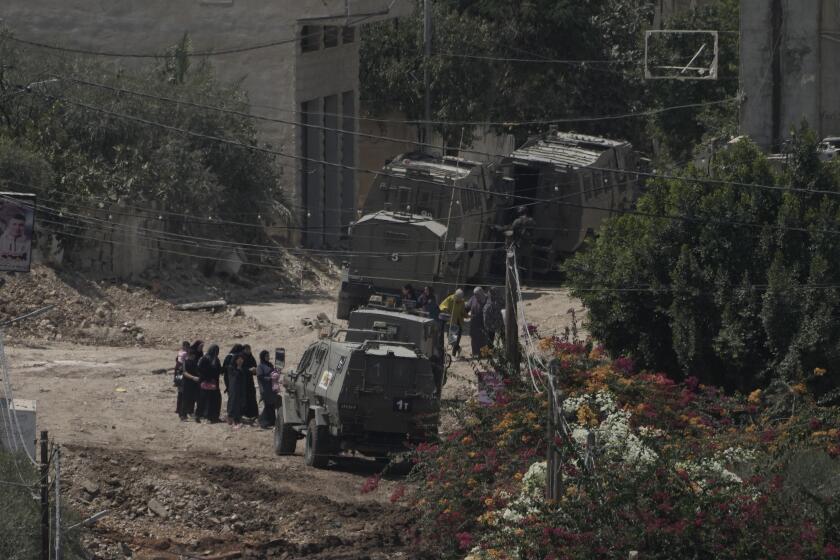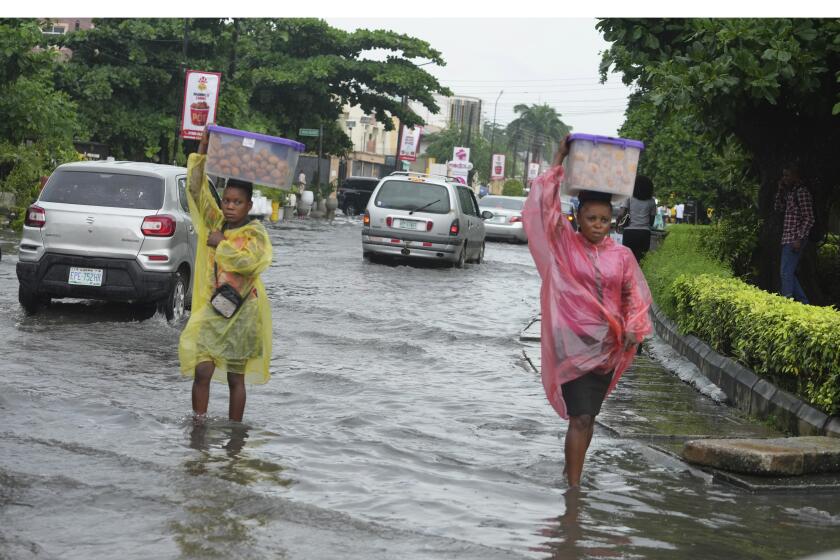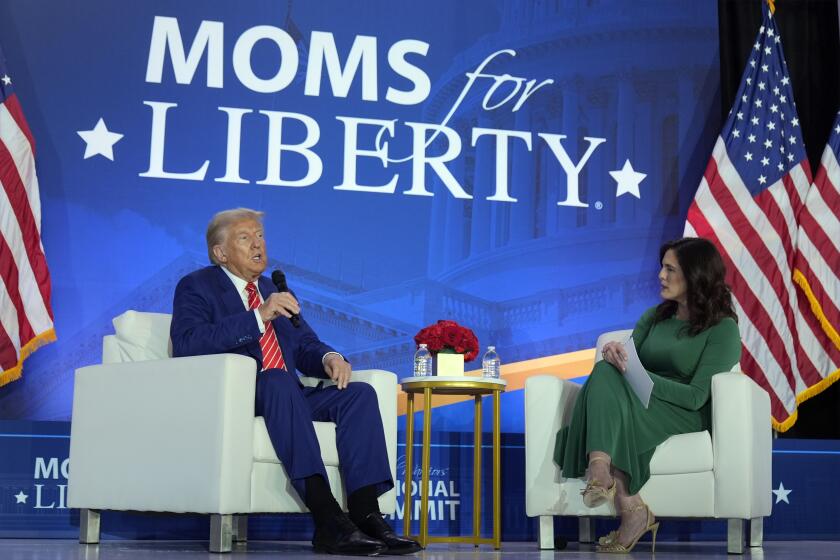Sanctuary for Nazi War Criminals Told
Hundreds of Nazi war criminals have been protected in Australia for more than 40 years by an official conspiracy of silence, Australian author and broadcaster Mark Aarons says.
He writes in his new book “Sanctuary” that British and U.S. screening officials hid the dark past of Nazis who entered Australia with more than 200,000 refugees after World War II.
The book, published in November after more than 10 years of research around the world, describes how Western intelligence bodies used Nazi criminals as anti-communist agents in Europe, then quietly dumped them elsewhere.
“Australia was chosen as one of these dumping grounds,” the 37-year-old author said in a recent interview. “Sadly, official files demonstrate unequivocally that Australia turned a blind eye to these murderers once they were here.
“Our security services knew who they were, but they were turning a blind eye. It was the era of the Cold War. These people were seen as anti-communists and useful foot soldiers in the struggle against the ‘Red menace,’ ” he said.
Nazi criminals and their collaborators in many East European countries also found safe haven in the United States, Britain and Canada, Aarons writes.
The disclosures made in “Sanctuary,” including identities of alleged Nazis now in politics, business and other areas, have caused a stir in Australia, where the Labor Party government has taken steps to hunt down war criminals.
The federal director of public prosecutions, Mark Weinberg, briefly tried to ban the book, fearing that it could prejudice possible trials of Nazi suspects after three years of intensive investigations.
Aarons made a sensational expose about Nazis in Australia in a series of broadcasts in 1986 on the government-financed Australian Broadcasting Corp. network.
Until then, successive Liberal and Labor governments had dismissed media claims of Nazi penetration of Australian society as a myth.
The expose triggered an official inquiry, which confirmed for the first time that many people who committed serious crimes in World War II could have entered the country.
A special state investigation unit headed by lawyer Robert Greenwood was set up and the government, after heated debate in Parliament, introduced a War Crimes Act in 1988 allowing for prosecution of suspected Nazi war criminals.
“Some migrants in Australia appeared to have been guilty not just of marginal crimes, but of quite fundamental crimes, atrocities. . . . ,” Prime Minister Bob Hawke said at the time.
Greenwood has said legal action against war criminals would cost millions of dollars, but that it is important to see the matter through even after 40 years.
He has a list of more than 600 alleged war criminals in Australia, including names of 28 people passed on by the Nazi-hunting Simon Wiesenthal Center in Jerusalem.
About half of them have been discarded because they are either dead, have left the country or are too old to face prosecution.
About 12 cases are very serious, involving the murder of hundreds of people and extreme cruelty, according to Greenwood, who keeps the names secret.
“Sanctuary” names many alleged Nazi criminals, but Aarons said he has deleted the bulk of material that might have jeopardized prosecutions.
One of those named is Yugoslav immigrant Ljenko Urbancic, now a prominent member of the mainstream Liberal Party, who does not deny Aarons’ allegation of past links with the Nazis.
Urbancic, 67, worked in a German-controlled propaganda unit, making anti-Jewish and anti-Allied broadcasts from his occupied homeland, the Yugoslav republic of Slovenia.
“But I am not a Nazi. I cooperated with the Nazi military authorities to get weapons for the fight against communists, who were then posing as liberation fighters in Slovenia,” he said.
“Yes, the communists called me ‘Little Goebbels,’ ” he said, referring to Hitler’s propaganda minister, Paul Joseph Goebbels. “They called me other names too. I don’t care. I cooperated with the Nazis to obtain weapons for a nationalistic cause.”
A tall, angular man with a powerful, persuasive voice, Urbancic runs a right-wing think tank called Liberty Research from an old wooden train car on the outskirts of Sydney.
“It is not a crime to be an anti-Jew or a Nazi,” he said.
Urbancic speaks proudly of his wartime connections with the German puppet government of President Leon Rupnik, whom the Yugoslav government hanged after the war as a Nazi criminal.
“Sanctuary,” said Urbancic, is a classic example of how Australian immigration laws were bent just after the war.
Aarons also cites the case of a man he said was responsible for the deaths of thousands of Jews, Gypsies and others in the Soviet republic of Byelorussia who now lives in Melbourne.
“There are many like him living in Australia. I have talked to a number of them. Their reaction in the main is that they were nationalists, they were anti-communists and they were fighting for the freedom of their own country,” he said.
Because of the time lapse and difficulty in obtaining evidence, many of the war criminals in Australia could never be brought to trial, Aarons said.
More to Read
Sign up for Essential California
The most important California stories and recommendations in your inbox every morning.
You may occasionally receive promotional content from the Los Angeles Times.






